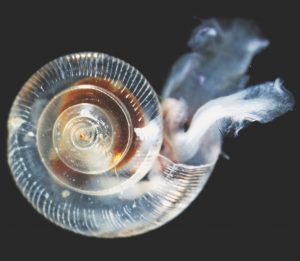Ocean and Coastal Acidification – Project Update
On June 19th, affiliates of the Maine Ocean and Coastal Acidification Partnership (MOCA) met together with representatives from the U.S. Environmental Protection Agency (EPA), the National Oceanic and Atmospheric Administration (NOAA) and industry stakeholders at UMaine’s Darling Marine Center for a planning meeting to advance best practices in ocean and coastal acidification monitoring. The workshop focused on next steps for monitoring collaborations and new partnerships throughout the region.
Following on from this meeting, Master’s student Parker Gassett provides an update on a Mitchell Center-funded project being led by Aaron Strong, Assistant Professor, School of Marine Sciences. Gassett, a dual Marine Policy/Marine Biology major, is a team member on the project, which is titled “Ocean and Coastal Acidification in Maine: Expanding Community Resilience Through Citizen Science, Outreach, and Education.”

Gassett says work is now underway to host a series of citizen science workshops this spring, in Maine, Massachusetts, and Connecticut. The purpose is to provide tools and trainings for water monitoring groups to collaboratively investigate acidification. The workshop series is being co-led with support from NOAA, EPA, the Northeast Coastal Acidification Network, Maine Sea Grant, MIT Sea Grant, UMaine and the UMaine Cooperative Extension Office, and the Connecticut Department of Energy and Environmental Protection.
“As our understanding of ecological questions are rapidly expanding in complexity alongside a need for more information and larger datasets, citizen science may provide a critical, complementary dimension for research and a task force of involved people unsurmountable by traditional forms of scientific inquiry,” Gassett says.
He adds, “This work builds on extensive stakeholder networks to support the successful use of citizen science participation in research and management for ocean and coastal acidification by improving fundamental elements of data sharing and usability.”
To read a story about Strong and the recent Darling Marine Center meeting, click here.
—David Sims
